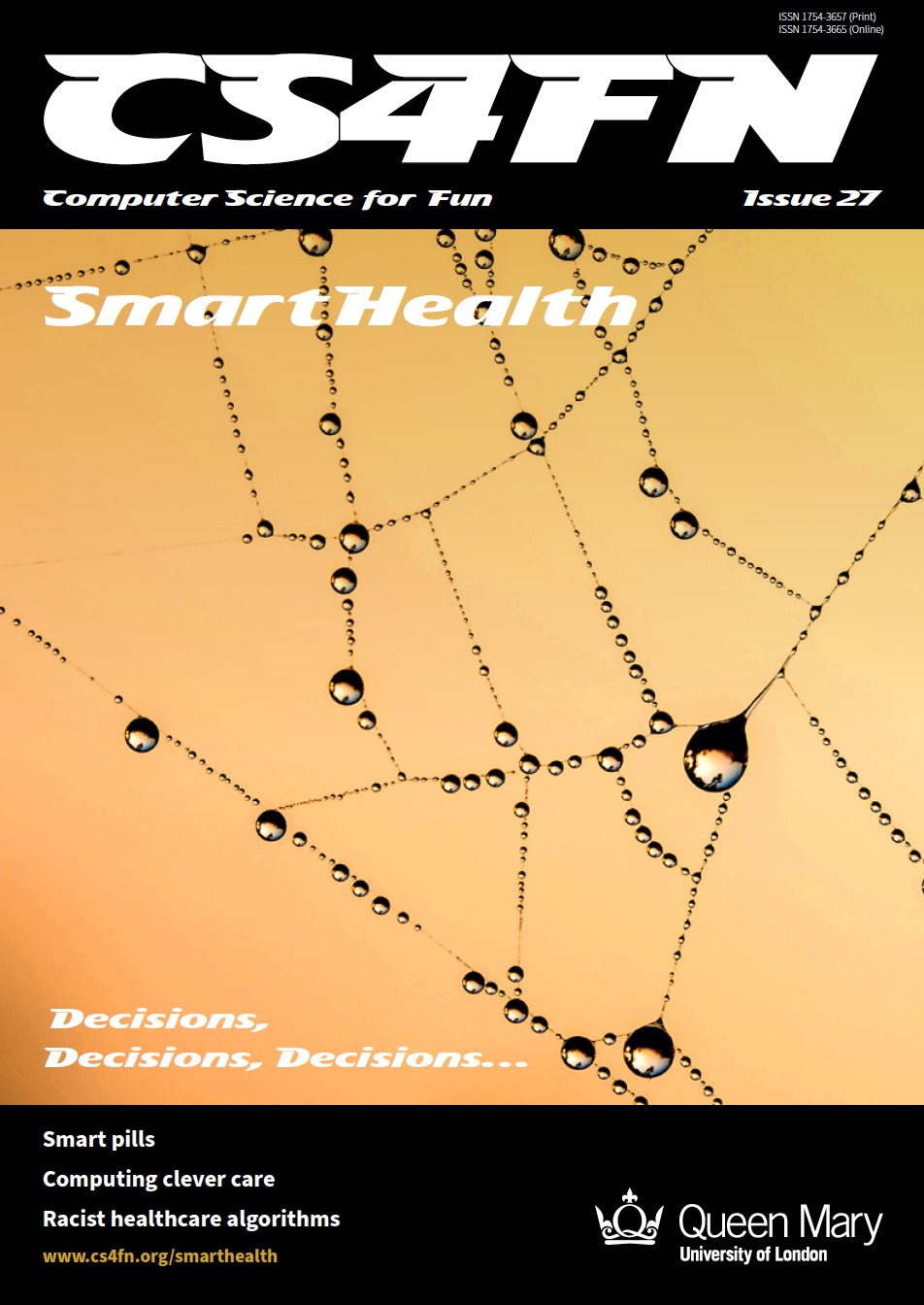A magazine where the digital world meets the real world.
On the web
- Home
- Browse by date
- Browse by topic
- Enter the maze
- Follow our blog
- Follow us on Twitter
- Resources for teachers
- Subscribe
In print
What is cs4fn?
- About us
- Contact us
- Partners
- Privacy and cookies
- Copyright and contributions
- Links to other fun sites
- Complete our questionnaire, give us feedback
Search:
Smart Health
Decisions, Decisions, Decisions
The trouble with healthcare is that it’s becoming ever more expensive: new drugs, new treatments, more patients, the ever-increasing time needed with experts.
We want everyone to get the care they need, but the costs are growing. Perhaps computer scientists can help? Research groups worldwide are exploring ways to create computing technology to improve healthcare, and intelligent programs that can support patients at home, helping monitor them and make decisions about what to do.
For example, say you are on powerful drugs to manage a long term illness: should you have the vaccine? Can you have a baby? Is a flare up of your disease about to hit you and how can you avoid it? Is that new ache a side effect of the drugs? Do you need to change medicines? Do you need to see a specialist? If artificial intelligences can help support patients then the doctors and nurses can spend more time with those who need it, hospitals can save on expensive drugs that aren’t working, and patients can have better lives. But what kind of technology can deliver this sort of service? Here, we explore one particular way being developed on the EPSRC funded PAMBAYESIAN project at Queen Mary University of London, based on an area of computing called Bayesian networks, that might just be the answer. We alos look at lots of other ways computers can help deliver better healthcare for all.
Sensors
Fatigue
Anxiety
Diagrammatic Proof
COVID Decision making
Decision making
Calculating probabilities
A puzzle
Machine learning
Arthritis
Mobile Computing
Interaction design
Personalisation
Maternity care
Back (page)...
cs4fn is edited by Paul Curzon and Jo Brodie with extra proof reading Sue White of Queen Mary University of London. Summer 2021. EPSRC supported this issue through the PAMBAYESIAN research grant (EP/P009964/1): see www.pambayesian.org




